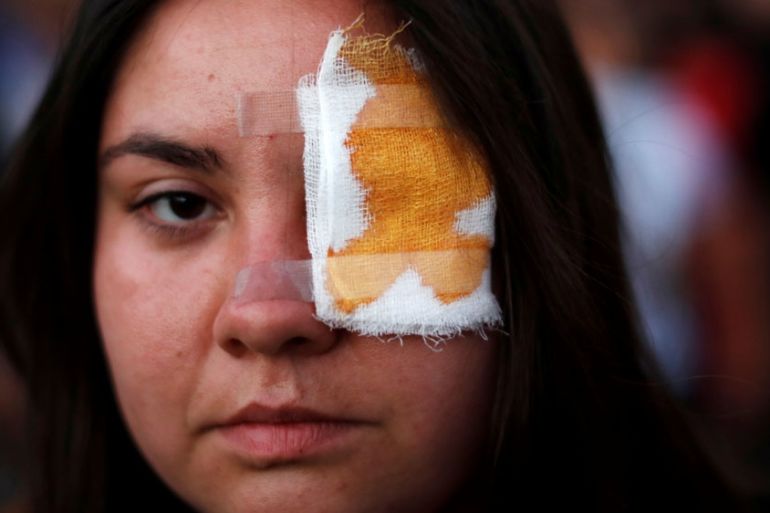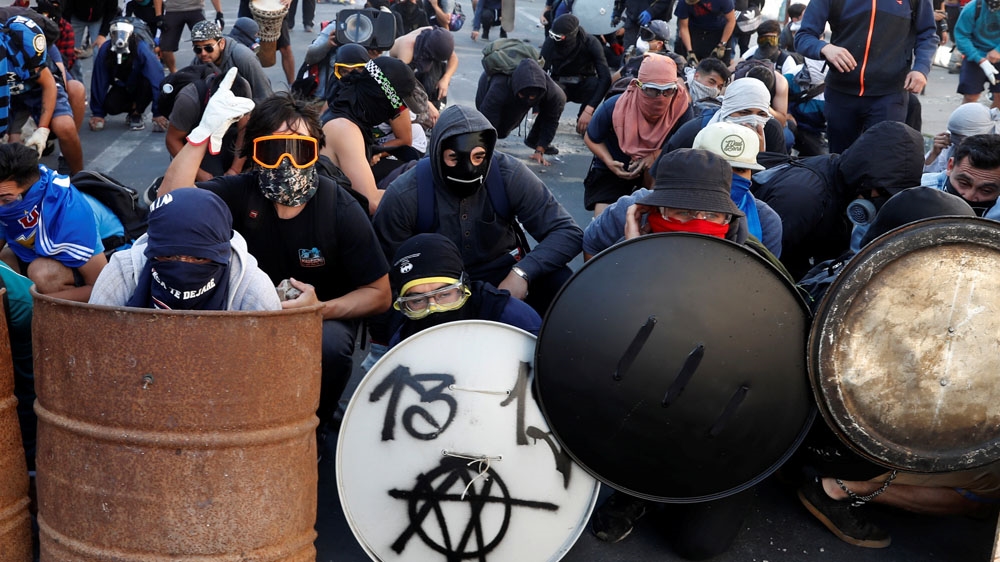Chile police suspend use of rubber bullets amid eye injuries
A Chilean human rights group has documented 222 cases of hospitalisation for eye injuries.

Chilean police have suspended the use of birdshot rubber pellets during street protests amid an outcry over eye injuries suffered by more than 200 protesters.
The decision was announced on Tuesday by the head of the Carabineros – Chile’s military police – Mario Rozas, after one month of sometimes violent protests over socioeconomic inequality and other concerns.
Keep reading
list of 3 itemsChile opposition files ‘constitutional accusation’ against Pinera
Chile’s Pinera vows action over security forces abuses
Police say the birdshot pellets are made of rubber but some studies have found that they also contain metal.
“As a prudent step, the use of this non-lethal ammunition as a riot tool has been ordered suspended,” Rozas told reporters.
A recent study by the University of Chile on ammunition extracted from injured protesters found birdshot composed of 20 percent rubber, with the remaining 80 percent consisting of silica, barium sulfate and lead, which meant the pellets were as hard as “a skateboard wheel,” the report said.
Rozas explained that following the report, an internal investigation was conducted, which also found “discrepancies” with the information provided by the company that sells the birdshot.
Beginning on Tuesday, he said, the birdshot could only be used in the same manner “as firearms, as an extreme measure and exclusively for self-defence when there is an imminent threat of death.”

Protesters with eye injuries have become a symbol of the demonstrations, with some of those marching wearing eye patches as a sign of solidarity with the injured.
According to Chile’s National Human Rights Institute, there have been 222 documented cases of hospitalisation for eye injuries, some 75 percent of which were caused by projectiles. The institute says a total of 2,391 people have been hospitalised for all injuries.
The public prosecutor has opened 26 investigations into deaths during the protests that reached their one-month mark on Monday. At least five people have been killed by security forces.
Near-daily street protests began with high school students refusing to pay a metro ticket price rise but have since mushroomed into the deepest social crisis the South American country has seen since its return to democracy in 1990.
Chile’s security forces have been accused of human rights abuses in their clashes with protesters. On Monday, President Sebastian Pinera promised there would be “no impunity” for those who used excessive force against protesters.
Public prosecutors in Chile are investigating more than 1,000 cases of alleged abuses. The United Nations and Amnesty International have dispatched teams to conduct investigations.